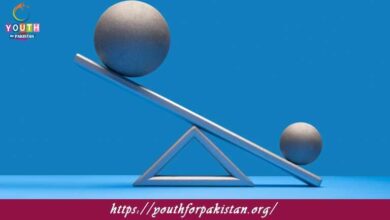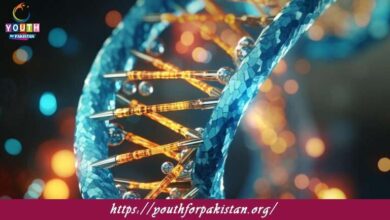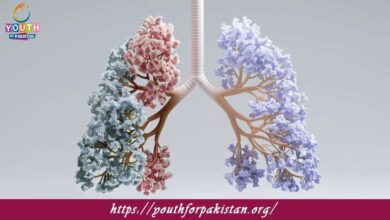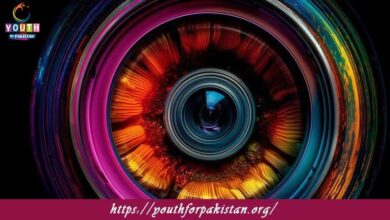10th Class Biology Chapter 12 MCQs with Answers
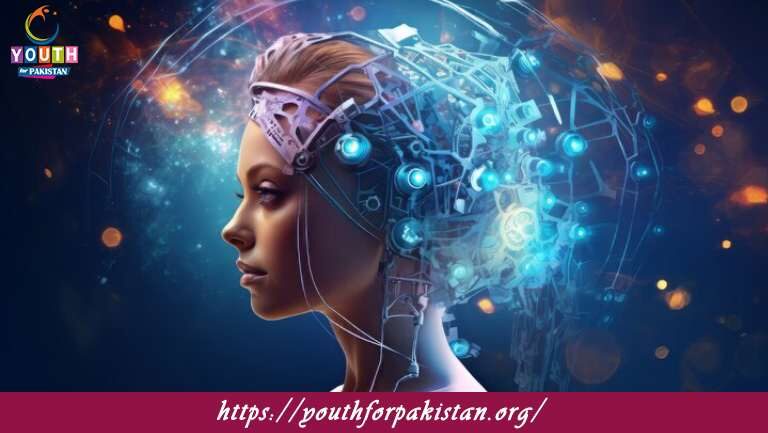
Explore the mechanisms of coordination and control with 10th Class Biology MCQs. Topics include the nervous system, endocrine functions, and reflex actions. This set is tailored for exam success, with trending keywords like “coordination MCQs for biology tests” and “control systems quiz questions.” A perfect companion for efficient study sessions.
Which of the following is the control center of the nervous system?
a) Brain
b) Spinal cord
c) Neurons
d) Hormones
Which part of the brain is responsible for regulating balance and coordination?
a) Cerebrum
b) Medulla oblongata
c) Cerebellum
d) Thalamus
Which hormone is known as the “fight or flight” hormone?
a) Insulin
b) Estrogen
c) Testosterone
d) Adrenaline
The central nervous system consists of:
a) Brain and spinal cord
b) Nerves and ganglia
c) Hormones and receptors
d) Sensory and motor neurons
The chemical messengers of the endocrine system are called:
a) Neurons
b) Hormones
c) Neurotransmitters
d) Axons
Which part of the eye is responsible for focusing light on the retina?
a) Cornea
b) Iris
c) Lens
d) Pupil
The gland located just below the Adam’s apple that produces hormones essential for
metabolism is called:
a) Thyroid gland
b) Pituitary gland
c) Adrenal gland
d) Pancreas
Which sensory receptor is responsible for detecting light and color vision?
a) Thermoreceptor
b) Photoreceptor
c) Chemoreceptor
d) Nociceptor
Which part of the brain is responsible for regulating body temperature, hunger, and thirst?
a) Cerebrum
b) Hypothalamus
c) Thalamus
d) Medulla oblongata
Insulin is produced by which organ of the body?
a) Liver
b) Kidneys
c) Pancreas
d) Gallbladder
Which part of the nervous system controls involuntary actions like breathing and heartbeat?
a) Central nervous system
b) Peripheral nervous system
c) Autonomic nervous system
d) Somatic nervous system
Which hormone is responsible for regulating blood sugar levels?
a) Glucagon
b) Estrogen
c) Progesterone
d) Testosterone
The largest part of the brain responsible for consciousness and voluntary actions is the:
a) Cerebrum
b) Cerebellum
c) Medulla oblongata
d) Hypothalamus
Which gland is often referred to as the “master gland” as it controls the other endocrine glands?
a) Thyroid gland
b) Adrenal gland
c) Pituitary gland
d) Pancreas
Which part of the ear is responsible for maintaining body balance?
a) Eardrum
b) Cochlea
c) Vestibule
d) Semicircular canals
Which of the following is a part of the peripheral nervous system?
a) Brain
b) Spinal cord
c) Nerves
d) Hypothalamus
The hormone responsible for the development of male secondary sexual characteristics is:
a) Estrogen
b) Progesterone
c) Testosterone
d) Insulin
What type of neuron carries impulses from receptors to the central nervous system?
a) Sensory neurons
b) Motor neurons
c) Interneurons
d) Relay neurons
The part of the brain that acts as a bridge connecting the cerebrum and cerebellum is the:
a) Cerebral cortex
b) Medulla oblongata
c) Corpus callosum
d) Pons
Which hormone regulates the sleep-wake cycle and is influenced by natural light and darkness?
a) Melatonin
b) Serotonin
c) Dopamine
d) Endorphin
Which structure of the eye is responsible for giving it its color?
a) Pupil
b) Iris
c) Cornea
d) Retina
The adrenal glands are located on top of which organs in the human body?
a) Kidneys
b) Liver
c) Pancreas
d) Lungs
Which part of the brain is responsible for regulating emotions and behavior?
a) Thalamus
b) Cerebellum
c) Amygdala
d) Hypothalamus
The nerve responsible for transmitting signals from the retina to the brain is the:
a) Optic nerve
b) Auditory nerve
c) Olfactory nerve
d) Facial nerve
Which part of the brainstem is responsible for regulating vital functions like heartbeat and breathing?
a) Cerebrum
b) Medulla oblongata
c) Cerebellum
d) Thalamus
Which hormone is responsible for uterine contractions during childbirth and milk ejection during breastfeeding?
a) Estrogen
b) Oxytocin
c) Progesterone
d) Testosterone
Which part of the brain is responsible for regulating hunger and satiety?
a) Cerebellum
b) Hypothalamus
c) Medulla oblongata
d) Thalamus
Which sensory receptor is responsible for detecting pain?
a) Thermoreceptor
b) Photoreceptor
c) Chemoreceptor
d) Nociceptor
The process by which a nerve impulse jumps from one node of Ranvier to another is called:
a) Synaptic transmission
b) Repolarization
c) Saltatory conduction
d) Reflex action
Which hormone is responsible for regulating calcium levels in the blood?
a) Insulin
b) Thyroxine
c) Calcitonin
d) Glucagon
Which part of the ear amplifies sound vibrations and transmits them to the inner ear?
a) Eardrum
b) Cochlea
c) Vestibule
d) Ossicles
The hormone responsible for regulating the body’s metabolism is:
a) Glucagon
b) Thyroxine
c) Insulin
d) Estrogen
Which part of the nervous system controls voluntary actions like walking and talking?
a) Central nervous system
b) Peripheral nervous system
c) Autonomic nervous system
d) Somatic nervous system
Which hormone is responsible for the growth and development of the female reproductive system and secondary sexual characteristics?
a) Progesterone
b) Testosterone
c) Estrogen
d) Insulin
What is the gap between two neurons where chemical communication occurs?
a) Dendrite
b) Axon
c) Synapse
d) Myelin sheath
Which part of the brain controls breathing, blood pressure, and heart rate?
a) Cerebrum
b) Hypothalamus
c) Medulla oblongata
d) Thalamus
The hormone responsible for regulating blood glucose levels is:
a) Insulin
b) Estrogen
c) Testosterone
d) Adrenaline
Which part of the eye contains light-sensitive cells that convert light into electrical signals?
a) Cornea
b) Iris
c) Retina
d) Pupil
Which gland is responsible for producing melatonin?
a) Thyroid gland
b) Pineal gland
c) Adrenal gland
d) Thymus gland
Which of the following is NOT a part of the endocrine system?
a) Pancreas
b) Pituitary gland
c) Spinal cord
d) Adrenal gland
Which hormone is responsible for the development of male reproductive organs and secondary sexual characteristics?
a) Estrogen
b) Progesterone
c) Testosterone
d) Insulin
What is the main function of the myelin sheath?
a) Transmitting nerve impulses
b) Providing nutrients to neurons
c) Protecting the neuron
d) Speeding up nerve impulse conduction
Which part of the brain is responsible for regulating thirst and hunger?
a) Cerebrum
b) Hypothalamus
c) Medulla oblongata
d) Thalamus
The nerve responsible for transmitting signals for smell from the nose to the brain is the:
a) Optic nerve
b) Auditory nerve
c) Olfactory nerve
d) Facial nerve
Which hormone is released in response to stress and prepares the body for the “fight or flight” response?
a) Insulin
b) Estrogen
c) Testosterone
d) Cortisol
The reflex arc consists of the following sequence of components:
a) Receptor, sensory neuron, interneuron, motor neuron, effector
b) Receptor, motor neuron, interneuron, sensory neuron, effector
c) Receptor, motor neuron, sensory neuron, interneuron, effector
d) Receptor, interneuron, motor neuron, sensory neuron, effector
Which part of the brain is responsible for relaying sensory and motor signals to and from the cerebral cortex?
a) Cerebellum
b) Hypothalamus
c) Thalamus
d) Medulla oblongata
Which hormone is responsible for stimulating milk production in the mammary glands after childbirth?
a) Estrogen
b) Oxytocin
c) Progesterone
d) Testosterone
Which part of the brain is responsible for regulating body temperature?
a) Cerebrum
b) Hypothalamus
c) Medulla oblongata
d) Thalamus
The sensory receptors responsible for detecting taste are called:
a) Thermoreceptors
b) Photoreceptors
c) Chemoreceptors
d) Olfactory receptors
Which hormone regulates the body’s metabolism and energy production?
a) Glucagon
b) Thyroxine
c) Insulin
d) Estrogen
Which part of the nervous system controls involuntary actions of the muscles and glands?
a) Central nervous system
b) Peripheral nervous system
c) Autonomic nervous system
d) Somatic nervous system
The hormone responsible for the development and maintenance of female reproductive organs is:
a) Estrogen
b) Progesterone
c) Testosterone
d) Insulin
What is the role of dendrites in a neuron?
a) Transmitting nerve impulses
b) Providing nutrients to neurons
c) Speeding up nerve impulse conduction
d) Receiving incoming signals from other neurons
Which part of the brain is responsible for coordinating muscle movements and maintaining balance?
a) Cerebrum
b) Hypothalamus
c) Cerebellum
d) Thalamus
The hormone responsible for stimulating the development of male reproductive organs and secondary sexual characteristics is:
a) Estrogen
b) Progesterone
c) Testosterone
d) Insulin
What is the role of the motor neuron in a reflex arc?
a) Transmitting nerve impulses away from the spinal cord
b) Receiving incoming sensory signals
c) Coordinating the reflex action
d) Transmitting nerve impulses to the effector
The hormone responsible for regulating the body’s response to stress and maintaining
blood pressure is:
a) Insulin
b) Estrogen
c) Testosterone
d) Adrenaline
Which part of the brain is responsible for relaying information between the cerebral cortex and the spinal cord?
a) Cerebellum
b) Hypothalamus
c) Thalamus
d) Medulla oblongata
Which hormone is responsible for regulating blood calcium levels by promoting the release of calcium from bones?
a) Insulin
b) Thyroxine
c) Calcitonin
d) Glucagon
If you are interested to enhance your knowledge regarding Physics, Chemistry, Biology, and Computer please click on the link of each category, you will be redirected to dedicated website for each category.


